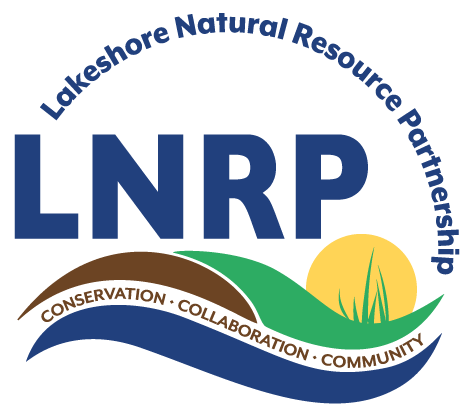LNRP Wraps Up Climate Adaptation Fund Efforts
LNRP secured funding in 2019 from the Wildlife Conservation Society’s Climate Adaptation Fund to support collective coastal resiliency efforts. Complementary to the multiple projects funded by US Forest Service grants, the effort uses tree plantings and collaborative education and outreach to address several issues that are emerging as critical challenges to the Lake Michigan coastal ecosystem.
Warming climate, changing precipitation patterns, and increasing severity of invasive pests are already posing great challenges to forested and riparian habitats. These habitats are critical for migratory and resident birds and wildlife in the region. These emerging challenges are compounded by existing fragmentation and widespread historic loss of forest cover to agricultural conversion and increasing urban development pressure across the lakeshore region.
As part of our engagement, LNRP has offered a number of training and outreach programs. These engagements also include ongoing consultations with the staff of the management agency and our local partners.
LNRP co-hosted with NIACS offered an online training course for stakeholders from June 8 – July 27, 2020 that was designed as a hands-on project-level training for the Lake Michigan Coastal Resiliency Project.
LNRP co-hosted Lake Michigan Day with the Lake Michigan Stakeholders (LMS) on August 14, 2020. The theme of the virtual event was “The Impact of Climate Change on the Great Lakes.” A Climate Crisis Action Statement was shared at the event and Danielle Shannon representing the Northern Institute of Applied Climate Science (NIACS) presented on behalf of our team.
LNRP hosted a one-day workshop on August 21, 2020, “Applying a Climate Change Filter to the Lake Michigan Coastal Resiliency Project.”
LNRP and our regional network partner, Lake Michigan Stakeholders, hosted a Fall Member Meeting on October 6, 2020, focused upon “Coastal Resiliency using Green Infrastructure.” This workshop was the springboard for our Coastal Resiliency Community Impact Project (CRCIP) that has been funded by the Fund for Lake Michigan in 2021 and 2022. A third year is pending with the application submitted on November 15, 2022.
LNRP and our watershed group partner, Ozaukee County Watershed Coalition (OCWC) hosted a hybrid “Love Our Great Lakes Day” event on October 9, 2021. One of the presentations was by Paul J. Roebber: Chair, Distinguished Professors, Director, Innovative Weather Atmospheric Sciences/School of Freshwater Sciences, University of Wisconsin at Milwaukee, Climate Change Impacts on the Great Lakes and the Upper Midwest.
LNRP hosted a partner workshop on March 31, 2022, in collaboration with NIACS, entitled. “Helping Great Lakes Ecosystems Adapt to Climate Change.” In this presentation, Kristen Schmitt and Danielle Shannon (Northern Institute of Applied Climate Science) talked about a ‘menu’ of adaptation strategies to help coastal managers plan for climate change. They highlighted examples of pilot projects that have applied these adaptation strategies to their work in wetland conservation, and shoreline, riparian, and habitat restoration.
Related Links (Winter 2023 Newsletter):
Twenty Years… it’s kind of a big deal
Climate Change Coalition of Door County Welcomes Jeff Lutsey as Next Executive Director
2022 Lakeshore Water Summit a Great Success
Town of Wilson Utilizes ROOTS Funding
LNRP Wraps Up Climate Adaptation Fund Efforts
LNRP Helps Lead Better Water Management at the Sheboygan Marsh
Lutsey Named Head of Climate Change Coalition - Peninsula Pulse
Lutsey Named New Climate Change Coalition Executive Director - Door County Daily News


